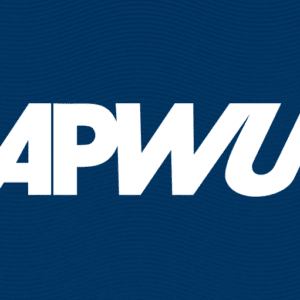August 27, 2021
For The People Act: Securing Voting Rights for All
(This article first appeared in the September-October issue of the American Postal Worker magazine)
If signed into law the For the People Act (HR.1/S.1) would be the largest expansion and protection of voting rights in decades. The legislation would also override the unjust laws recently passed in several states including Georgia that make it much harder for all working people to vote especially for minority and low-income people.
The legislation which passed in the House of Representatives on March 3 is broken down into three main sections: voting rights expansion campaign finance reform and ethics enforcement. Below is a summary of the main provisions in each of these sections:
Voting Rights Expansion
- Establishes national automatic voter registration requiring citizens to opt-out rather than optin of being registered to vote.
- Bans any restrictions on voting by mail and requires states to pre-pay return postage for all mail ballots.
- Requires online options for voter registration correction cancellation or designating party affiliation.
- Requires at least 15 consecutive days of early voting in federal elections with voting centers open for at least 10 hours per day.
- Ends partisan gerrymandering.
- Bans the practice of purging voter rolls for reasons of nonforwardable mail.
- Restores the right to vote for felons who have completed their sentences.
Campaign Finance Reform
Establishes public financing for campaigns with the government providing $6 for every $1 donated up to $200. The funding for this provision would come from new fees placed on banks and corporations during corporate malfeasance cases.
- Requires Super PACs and other “dark money” groups to disclose donors.
- Requires Facebook and Twitter to disclose funders of political ads on their platforms.
- Requires disclosure of election spending by any government contractors.
- Prohibits coordination between super PACs and candidates.
Ethics Enforcement
- Requires the President Vice President and all candidates for these offices to disclose the 10 most recent years of tax returns.
- Bans the use of public money to pay for sexual harassment or discrimination settlements involving members of Congress.
- Expands oversight of Office of Government Ethics and creates stricter requirements for lobbyists.
- Establishes a new ethics code of conduct for Supreme Court members.
John Lewis Voting Rights Advancement Act
Another piece of important legislation to protect voting rights is the John Lewis Voting Rights Advancement Act introduced on August 17 by Rep. Terri Sewell (D-AL- 07) and passed in the House on August 24. The legislation named after the late congressman and Civil Rights icon would protect voters from discrimination by restoring and protecting provisions of the landmark Voting Rights Act of 1965 that were gutted by U.S. Supreme Court decisions over the last decade.
The first major provision in the bill is the re-establishment of “preclearance,” the federal oversight that would prevent any states or localities with a recent history of voter discrimination from restricting the right to vote. This oversight a crucial part of the Voting Rights Act was dismantled by the Supreme Court’s 2013 decision in Shelby County v. Holder.
The law would also make it easier to challenge voter discrimination a process made more difficult by the Court’s 2019 decision in Brnovich v. DNC.
The APWU fully supports this legislation. For more information on the bill go to the Legislative and Political department page.
Sign up for News



